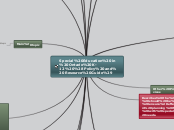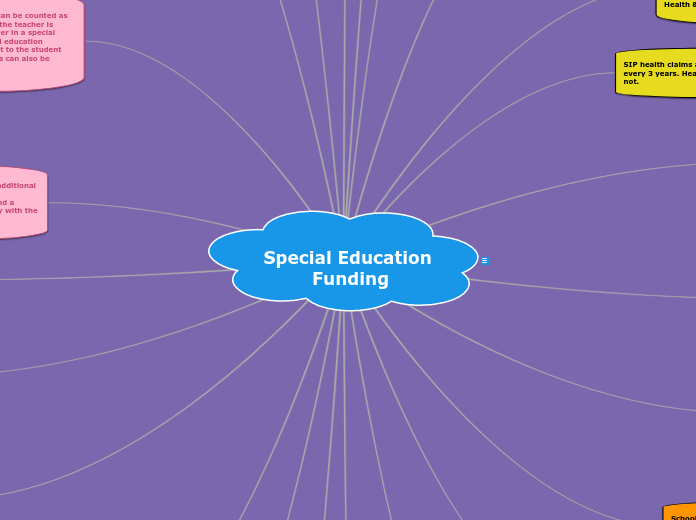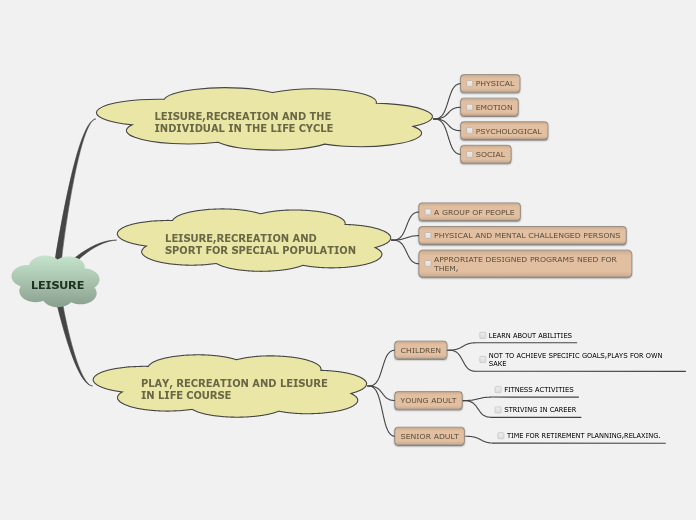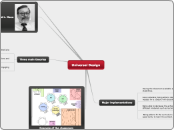KEY MINISTRY POLICY AND RESOURCE DOCUMENTS PERTAINING TO STUDENTS WITH SPECIAL EDUCATION (A20-A23)
POLICY DOCUMENTS
*Creating Pathways to Success: An Education and Career/Life Planning Program for Ontario Schools - Policy and Program Requirements, Kindergarten to Grade 12 (2013)
*Growing Success: Assessment, Evaluation, and Reporting in Ontario Schools - 1st Ed, covering Grades 1 to 12 (2010)
*Ontario First Nation, Metis, and Inuit Education Policy Framework
RESOURCE DOCUMENTS
*Caring and Safe Schools in Ontario: Supporting Students with Special Education needs through progressive discipline, Kindergarten to Grade 12 (2010)
*Foundations for a healthy school: Promoting well-being is part of Ontario's Achieving excellence vision (2014)
*Learning for All: A guide to effective assessment and instruction for all students, Kindergarten to Grade 12 (2013)
*Shared Solutions: A guide to preventing and resolving conflicts regarding programs and services for students with special education needs (2007)
*Supporting Bias-Free progressive discipline in schools: A resource guide for school and system leaders (2013)
*Supporting minds: An educator's guide to promoting students' mental health and well-being (draft version, 2013)
*Education Funding:A guide to the special eduction grant
Assessment for Learning
Early Intervention and Special Needs Services
Early identification of children with special needs is often done by agencies of ministries other than the Ministry of Education. A number of initiatives from the Ministry of Children and Youth Services are intended to facilitate early identification of young children with special needs and to provide
appropriate services for them.
English Language Learners
STEP: Steps to English Proficiency (2015) framework
Infant Development Program
Blind–Low Vision Early Intervention Program
Preschool Speech and Language Program
Ontario Autism Program
Ontario Infant Hearing Program
Healthy Babies, Healthy Children
The board’s special education plan must provide information on the roles and responsibilities of the following
Must outline in detail the board’s general philosophy and service-delivery model for the provision of special education programs and services.
1.a statement of how, in accordance with Regulation 464/ 97 made under the Education Act, the board ensures that its SEAC is involved in the annual review of the board’s special education plan 2. a description of any majority or minority reports concerning the board’s approved plan that have been received from members of the board’s SEAC
To provide details of the board’s consultation process to the ministry and to the public
Special Education in Ontario K-12 (Policy and Resource Guide)
1. Reasons for developing an IEP
2. IEP Student Profile
3. The student's strengths and needs
4. The special education program
Reasons for the IEP
1- students who are identified as exceptional by IPRC
2 - Deemed by the board or other services to attend school.
3 - If determined by: Principal/Teacher if requires much accomodation or specialized equipment / for EQAO /
The Individual Education Plan
IEP 5 main phases
1- Gather information
2 - Setting Direction
3 - Develop program as student needs
4 - Implement the IEP
5- Review and update the IEP
Reason for Developing an IEP
- Developed for every student who has been identified as an exceptional student by an IPRC or has been deemed exceptional by the board to require Special Education
Additional Considerations:
-Students achievement will be assessed on the basis of modified expectations.
-If a student requires accomodations including SEA equipment.
Student Profile
Students Full Name
Date of Birth
Student Identification Number
Current School Year
Name of school and principal
The language spoken by the student at home
The student's enrolment history, last school attended, attendance patterns, school behaviour, and social skills
Provides a guide to the development of an IEP, including a transition plan, according to province-wide standards and recent policy/program memoranda.
The Identification, Placement and Review Committee (IPRC) Process
If a parent does not agree with a placement, they may submit an appeal within 30 days of the decision.
Within 15 days of the school board receiving the appeal, the school board will select one person to be a member of the SEAB. Parents will also select a person to be a member of this as well.
The SEAB must make its recommendations to the school board within three days of the end of the meeting.
It is effective practice to document discussions at meetings where important decisions are made. The school board may want to keep a formal record of the meeting, including documents considered by the committee, for use in the event of an appeal.
Parents, and students who are 16 years of age or older are entitled to attend the IPRC and participate in discussions about the student. They are also entitled to be present at the time that the committee's identification and placement is made.
The parents get a copy of the statement of decision / as well as the principal and director of the board.
No student is to be denied any special education program, pending an IPRC meeting or decision.
Each school board is required to prepare a parent guide to special education, which must be provided to the parents once an IPRC meeting is requested.
Each school board has its own procedures for inviting parents to attend an IPRC meeting.
10 Days before meeting, Chair of committee must send notification to parent(s) / Guardian(s)
Parents have the right to request an IPRC
Composed of at Least 3 people: One must be Principal or S.O.
responsible for the identification of exceptional students and their placement in special education programs.
A formal committee that meets and decides if a student should be identified as exceptional and, if so, the placement that will best meet the student's needs.
Standards for School Boards' Special Education Plan--This document describes the new province wide standards that school boards must meet when developing their special education plans.
Roles and Responsibilities
SE Programs and Services
Board 's Consultation Process
Early Identification, Assessment and Transition Planning
Key transitions in student's schooling
All About Me Portfolio
Elementary to Secondary Transition
Integrated Process of assessment and integration
Continuous Assessment
Early Identification - prior to school
Describes the steps that should be taken to ensure effective program planning for students with special education needs.
Other Programs and Services
Main topic
Legislation, Policy and Funding
FUNDING FOR SPECIAL EDUCATION - page A24
Allocation of funding:
- Special Education Per-Pupil
- Differentiated Special Education Needs Amount
- Special Equipment Amount
- Special Incidence Portion
- Facilities Amount
- Behaviour Expertise Amount
Document pages (A18 - A20)
Other Legislation Relevant to the Education of Students with Special Education Needs
- In addition to the Education Act, other legislation is relevant to the education of students with special needs:
- Accessibility for Ontarians with Disabilities Act (AODA)
- Audiology and Speech-Language Pathology Act
- Bill 168: The Occupational Health and Safety Amendment Act (Violence and Harassment in the Workplace), which amends the Occupational Health and Safety Act (OHSA)
- Early Childhood Educators Act
- Fair Access to Regulated Professions and Compulsory Trades Act
- Freedom of information legislation: The Freedom of Information and Protection of Privacy Act (FIPPA), The Municipal Freedom of Information and Protection Privacy Act (MFIPPA)
- Health Care Consent Act
- Home Care Community Services Act (HCCSA)
- Ontario College of Teachers Act
- Ontario College of Trades and Apprenticeship Act
- Ontario Human Rights Code
- Personal Health Information Protection Act
- Personal Information Protection and Electronic Documents Act
- Psychology Act
- Regulated Health Professions Act
- Social Work and Social Services Work Act
- Youth Criminal Justice Act
ADVISORY COMMITTEES - page A17
Minister's Advisory Council on Special Education (MACSE)
-matters related to establishment and provision of Sped Ed programs.
Special Education Advisory Committee (SEACs)
- Detailed list of responsibilities required in every school board
The Provincial Parent Association Advisory Committee on Special Education Advisory Committees (PAAC on SEAC)
- Forum for parents to share ideas and strategies to address common concerns.
Document pages A14 - A16
Categories of Exceptionalities:
Behavioural
Communicational
- Autism
- Deaf and Hard of Hearing
- Language Impairment
- Speech Impairment
- Learning Disability
Intellectual
- Giftedness
- Mild Intellectual
- Developmental Disability
Physical
- Physical Disability
- Blind and Low Vision
Multiple
- Multiple Exceptionalities
Roles and Responsibilities in Special Education (A10-A13)
THE MINISTRY OF EDUCATION
THE SCHOOL BOARD
THE SPECIAL EDUCATION ADVISORY COMMITTEE (SEAC)
THE SCHOOL PRINCIPAL
THE TEACHER
THE SPECIAL EDUCATION TEACHER
THE EARLY CHILDHOOD EDUCATOR
THE PARENT
THE STUDENT
EDUCATION ACT - page A2
The Education Act states that exceptional children shall have available to them appropriate special education programs and services without payment. It is mandatory for all school boards to provide special education programs and services for all their exceptional students.
Subtopic









